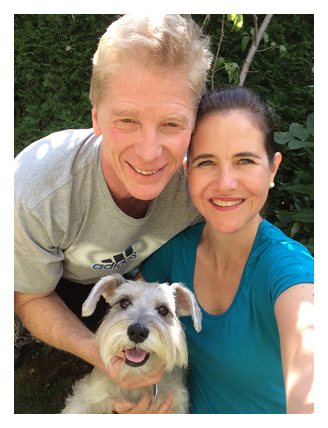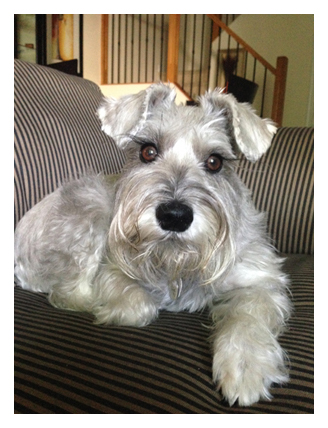
HOME
 YOUR HISTIO STORY
YOUR HISTIO STORY
I am looking for similarities
in all individual cases of
Histiocytic diseases.
I wonder if we all tell our
stories we might come up
with some commonality
between the specific
situations in which all of
our pets got this disease.
So please email me the
details and I'll put your
pets story on Shelley's
Histio Website
 UW HISTIO VERHAAL
UW HISTIO VERHAAL
Ik ben op zoek naar
overeenkomsten in alle
individuele gevallen van
Histiocytose.
Ik hoop dat wanneer wij
onze Histio verhalen
vertellen, wij overeen-
komsten ontdekken over
de manier waarop onze
huisdieren deze ziekte
hebben opgelopen.
Stuur mij de details en
ik zal het verhaal van uw
huisdier op de Histio
website van Shelley zetten.
 WARNING !
WARNING !
These stories are all
different. Individual
symptoms, situations
and circumstances
may vary and response to
therapy is not always the
same.
- Disclaimer -
 WAARSCHUWING !
WAARSCHUWING !
Deze verhalen zijn allemaal
verschillend. Individuele
symptomen, situaties en
omstandigheden kunnen
verschillen en de reactie
op therapie is niet altijd
hetzelfde.
- Disclaimer -
HISTIOCYTOSIS IN
OTHER LANGUAGES
German - Hund
Maligner Histiozytose
French - Chien
l'Histiocytose Maligne
Italian - Canis
Maligni Histiocytosis
Spanish - Perros
Histiocitosis Maligna
Dutch - Hond
Maligne Histiocytose
HOME
Frida
Histiocytic Sarcoma
Miniature Schnauzer
Female
May 30th, 2009 - November 26th, 2015


Story told by Veronica
Friday February 6th 2015
Frida woke up vomiting. I thought because of some soil she ate from a pot the previous night. But as the day progressed, I could tell Frida wasn’t feeling well. She was eating, but she didn’t seem her normal self. I could tell she wasn’t feeling well. And my worst concern is that she wasn’t drinking any water. She kept eating, but she wasn’t well, we decided to give her a couple of days, after all, she was eating.
Sunday February 8th
We took her to the vet, and she discovered that her belly felt quite tense, her liver seemed enlarged. We scheduled an ultrasound the following Friday, as there weren’t any other signs of an emergency (she didn't have symptoms of liver disease)
Tuesday February 10th
She was getting worse, more vomit and diarrhea. She vomited if I gave her her whole portion of food, if I gave her small portions she would keep it. I took her to the vet, and the X-rays revealed a mass in her stomach, the vet thought it was spleen related, and if that was the case, she would need surgery.
Wednesday February 11th
She had an ultrasound (we spent most of the night awake as she had diarrhea , poor thing) The ultrasound showed a tumour in the spleen, however nothing else around! Her organs seemed healthy. The u/s specialist recommended lungs X-Rays previous to the surgery.
Thursday February 12th
She was operated that day (we spent the previous night awake, all night, as the diarrhea continued) a huge tumour grapefruit size was removed and the spleen too. The doctor was pleased with the surgery, however she had some concern as the tumour was already attached to the ommentum (the layer of fat that covers the digestive organs) Everything was sent to a pathologist. The spleen surgery is very invasive and painful. Frida had 22 staples in her belly.
 Thursday February 19th
Thursday February 19th
I got the phone call from the vet, with the results. The tumour was malignant and according to the results, belonged to an aggresive category. The tumour was categorized as "non-lymphomatous, non angiomatous splenic sarcoma" with a mitotic rate that made it similar to splenic hemangiosarcoma. We booked an appointment with an oncologist and we requested the immunohistochemistry to know exactly the kind of tumour.
Tuesday March 3rd
We visited the oncologist. The pathology results were incomplete and just ruled out hemangiosarcoma. The doctor explained that in any case, Frida's cancer was very aggressive. She recommended a protocol with Doxorubucin or a combination of Doxorubucin and Lomustine based on the pending results. I inquired about Metronomic Chemotherapy (frequent, small doses of oral chemotherapy) She agreed that "it has been shown to delay the progression of certain types of cancers, but has not been widely evaluated" So we took our options home and evaluated all of them carefully. At this point we had decided that we didn't want Frida to go through any more pain or anxiety by leaving her every three weeks at the clinic for chemo. And also, financially, we were very close to an end. We decided to give her a chance to fight whatever she had, with the resources we could offer to her (besides tons of love). We chose Metronomic Chemo. We scheduled a new appointment for March 10th.
Saturday March 7th
We got the phone call from our regular vet, with the second part of the pathology test. SPLENIC HISTIOCYTIC SARCOMA. The report reads as follows "A substantial proportion of the tumor cell stained positively with CD 18. Not every tumor cells stained positively, but that only reflects the fact that they are not all equally mature or that they are not all necessarily following the same maturational pathway. It is a judgement call, but in my opinion there are enough positive cells to justify a diagnosis of splenic histiocytic sarcoma. This is one of the more common subtypes of non-lymphoid, non-angiogenic sarcomas. Of all the candidates, it probably has the worst prognosis".
Tuesday March 12th
We went to the oncologist and had already requested to perform complete tests: abdominal ultrasound, thoracic X-Rays, blood panel. If anything showed signs of metastasis we wouldn't start any treatment. We would take Frida home, and be happy with her whatever time she had left. But the good news are that the exams came clean! We will fight as long as we can. Now we just needed blood test results, if everything was OK, we would be given green light to start the treatment. That same evening I received the phone call allowing us to start the medication. I placed an order right away. Picked up on Saturday.
Sunday March 15th
Today Frida started her first doses of chemotherapy. The protocol: Cyclophosphamide 4mg capsules once every 48 hours, in combination with Furosemide 10 mg tablets (this is a diuretic drug, as the cyclophosphamide can cause hemorragic cystitis) Frida will be taking this until the day we find that the metastasis has started. That will mean that the drug is no longer working. She has an appointment next month, to perform blood tests and see how is she reacting to the treatment.
Friday May 1st
Frida is on her second round of treatment. Her bloodwork last month didn't show anything abnormal, and the oncologist prescribed the same protocol. (Cyclophosphamide 4 mg every 48 hrs and Furosamide 10 mg) She hasn't showed any side effects, she's eating normally, good appetite, her functions are ok and she is in very good spirits, energetic and playful. She looks happy and healthy. She will have blood work done this month again. We are happy and enjoying our time with her.
August 2015
She's still with us, but unfortunately the metastasis has started. It's 6 months after her surgery/diagnosis so she had a more extensive check up on Saturday, including X-Rays and there's a lesion in one of her lungs. We kind of suspected it, as we have noticed that she wants to sleep or rest more, she want short walks, she wants to be at home. She's not in pain, she's happy and playful. We are still waiting for some more info because there's blood work pending and the doctors will try to find out if our current treatment would contribute to slow the progression of this new tumour.
We are sad, but we know she's had a good life, and we will spend with her every moment and enjoy all the happiness she brings to our life.
October 2015
In October Frida had Xrays done to check the tumour in the lung, and it didn't grow much, so we were quite happy. We continued with the metronomic chemo. By mid October Frida started to be restless at night, even though during the day, especially in the evenings, she was pretty normal. But we also started noticing that she seamed to have nausea, and a few days later she started throwing up her food, no digested. That raised some flags, so we booked an appointment. But one early morning, as I was petting her in be d I could clearly feel a big mass in her belly. We took her that evening to the doctor and unfortunately they confirmed that she had a very big tumour in the liver. We were offered to have her done ultrasound, but we decided to stick to Xrays, as we knew that at this point the exact location of the tumour wouldn't make a difference. Frida was prescribed pain killers, in case needed, Famotidine to help her with the acidity, and basically, to feed her a soft diet. We started feeding her wet food, a formula very mild. She was eating happily the new food and seemed to be in no pain.
d I could clearly feel a big mass in her belly. We took her that evening to the doctor and unfortunately they confirmed that she had a very big tumour in the liver. We were offered to have her done ultrasound, but we decided to stick to Xrays, as we knew that at this point the exact location of the tumour wouldn't make a difference. Frida was prescribed pain killers, in case needed, Famotidine to help her with the acidity, and basically, to feed her a soft diet. We started feeding her wet food, a formula very mild. She was eating happily the new food and seemed to be in no pain.
November 2015
By mid November things started to change. Frida was in good spirits, but she became a picky eater, something that I had never experienced in my life with her. At this point we had stopped the chemo and decided to just keep her happy and comfortable. For some days boiled chicken, rice and carrots worked wonders. Then we changed to just chicken. And from there every day was a challenge, as from one day to the other she wouldn't want to eat something, but would accept a new option. I tried everything: ham, cheese, bread, home made peanut butter cookies for dogs, baby food, boiled carrots, scrambled eggs. This last were the best option. She loved them!! But she stopped eating her treats, and I knew that was very bad, because Frida loved food. She started a fever, had antibiotics, and she seemed to be in no pain. But the nights were restless, she didn't seem to be sleeping well, and she would wake up with nausea. Finally we started her on Cerenia, to prevent the nausea, we also tried an appetite stimulant for some days, but also it was getting very hard for me to give her any medications, as she would discover them in the food or spit them. She had never done that before. One night, it was Wednesday 25th, when my husband and her went to pick me up at work, I opened the door of the car and she didn't react to me. I got into the car, and she just rested her head in my arms. She was feeling terrible. We knew that the end was coming. That night I gave her some Tylenol in case she had pain, but she also started having diarrhea. That morning she stopped eating. Early in the morning I started the phone calls to make arrangements to help her to leave over on Friday. But as the morning went by I realized we weren't going to make it through the night, or at least in very poor conditions, . I didn't want to end up in an emergency clinic. We called the vet around noon and we arranged to do it that evening, at the clinic. We arrived there around 6 pm, and by 6:30, held in my arms, comforted by Mark, and knowing that we loved her to the moon and back she crossed the Rainbow Bridge.

